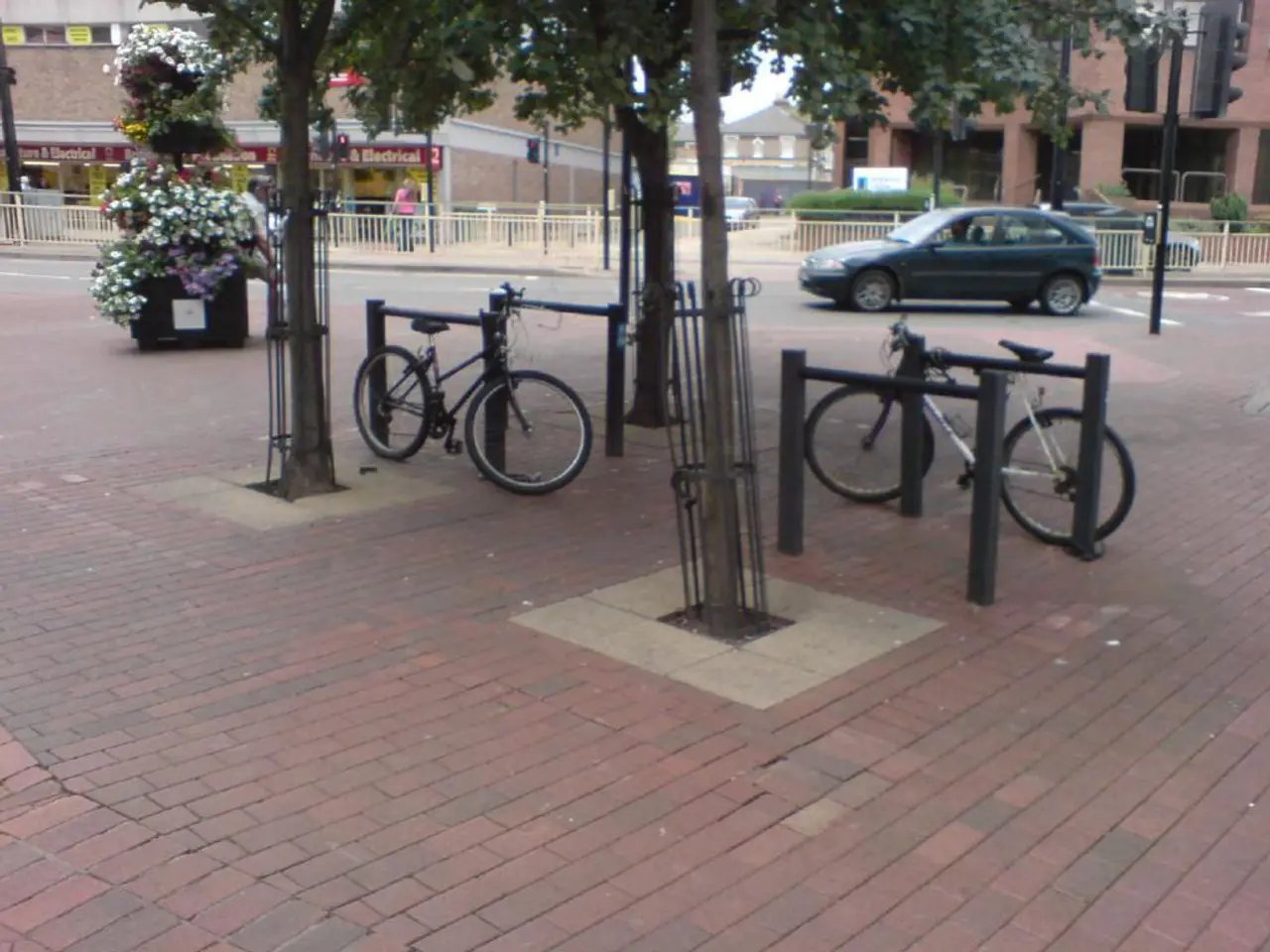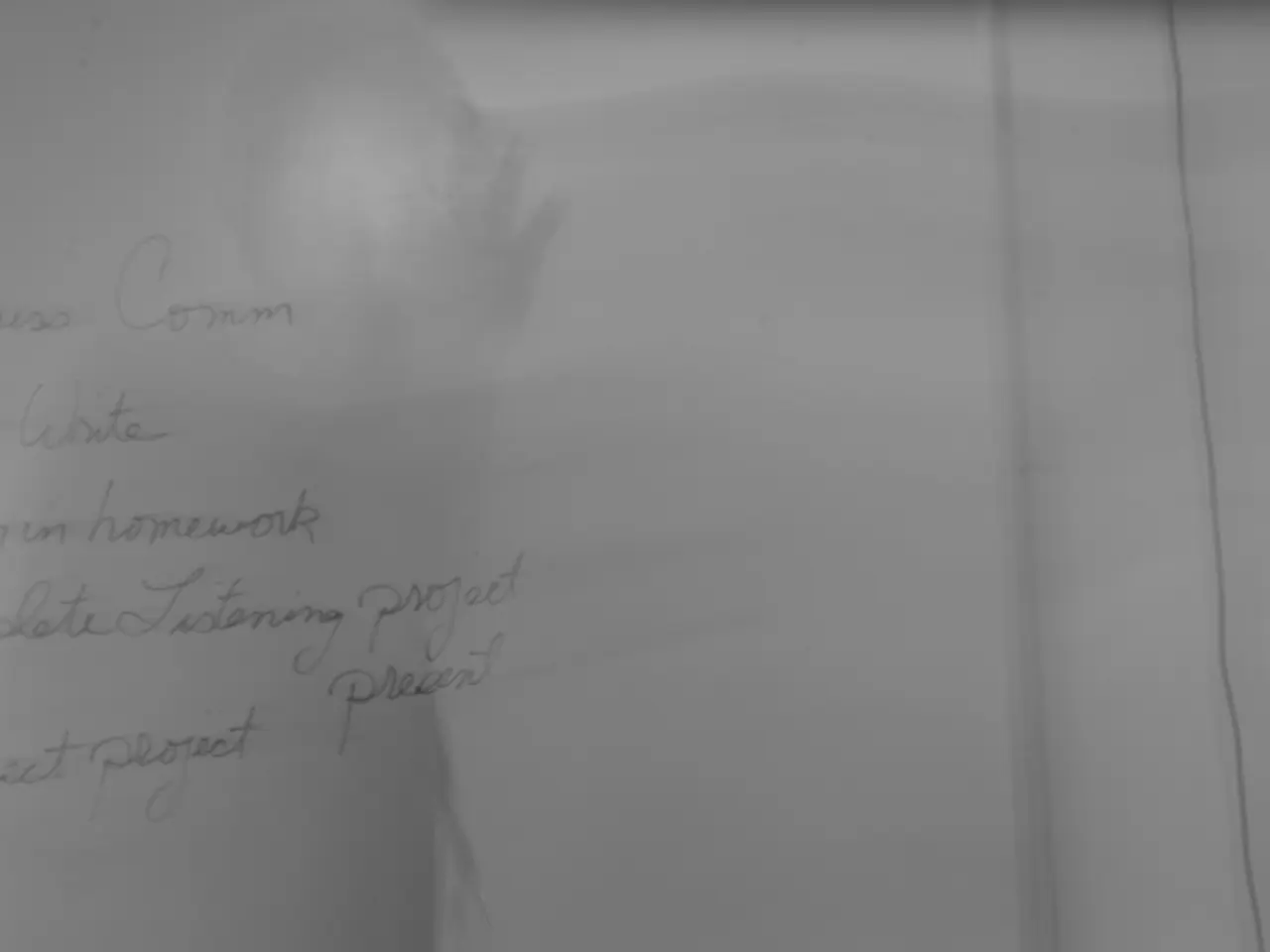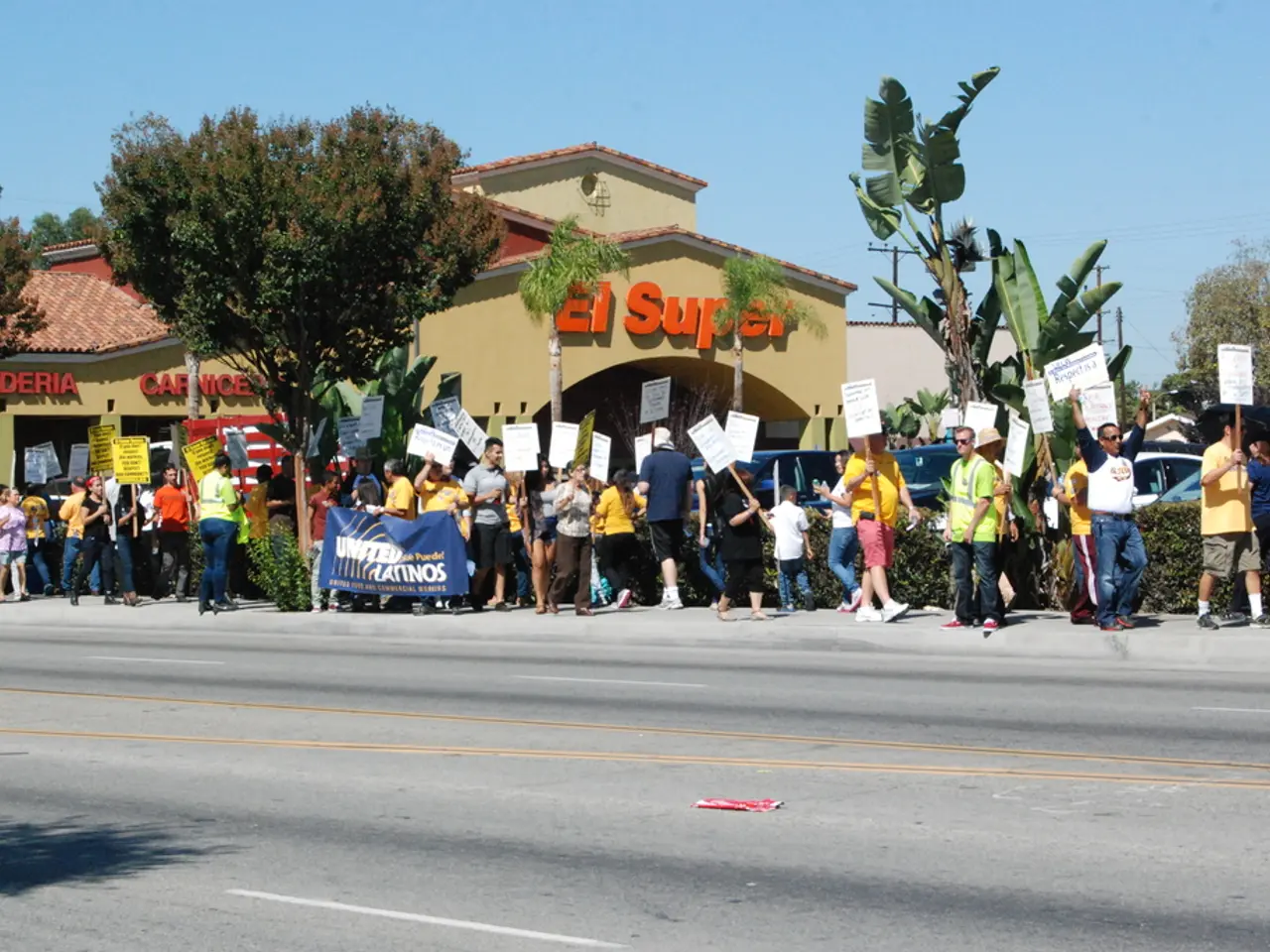Controversial Proposal of Exchanging Land in Gaza for Blockchain-Based Cryptocurrency Tokens Sparks Strong Opposition within Blockchain Community
In a controversial move, a proposal to tokenize Gaza land using blockchain technology has sparked widespread debate and criticism. The Tony Blair Institute, a non-profit policy organization, reportedly assisted in drafting this proposal.
The plan aimed to facilitate land redevelopment through tokenized investment mechanisms. Gazan residents could contribute their private land to the trust in exchange for tokens representing the right to a future housing unit. Public land in Gaza was proposed to be placed into a trust, with ownership stakes to be sold through digital tokens traded on a blockchain.
The proposal has drawn significant criticism from Palestinian advocates, who argue that it risks reducing displacement and suffering to a speculative investment strategy. Critics also contend that introducing blockchain-driven land sales in the wake of recent violence could exacerbate existing tensions and human rights issues rather than promoting equitable economic development.
Ethical concerns center on potential forced displacement, undermining of Palestinian land rights, exacerbation of conflict, and the moral implications of applying blockchain asset tokenization in disputed and vulnerable regions. The proposal by Israeli businessmen to tokenize Gaza land involves transferring state-owned land into a trust and selling tokenized rights to investors while offering Palestinians cash incentives to relocate. This raises concerns about whether the relocation is truly voluntary or coerced, the impact on Palestinian residents' sovereignty and land rights, and the broader political contestation over Gaza territory.
While blockchain is often championed for its potential to democratize access and increase transparency, this case illustrates how the same tools can be misappropriated when deployed without regard for human dignity or local agency. The proposed redevelopment efforts, envisioning Dubai-style artificial islands and blockchain-based trade zones, could lead to the privatization and commodification of land resources in ways detached from local social and political realities, turning essential communal assets into speculative financial instruments on a blockchain.
It is crucial to remember that decentralized technology should be used to uplift people, not to commodify displacement or capitalize on crises. As we continue to innovate and explore the potential of blockchain technology, it is essential to prioritize ethical considerations and ensure that these technologies are used to foster equitable economic inclusion rather than enabling injustice.
For the Shiba Inu ecosystem, this serves as a critical reminder that platforms like Shibarium, and upcoming innovations such as the Alpha Layer, must prioritize community empowerment. Readers are encouraged to conduct their own research and consult with a qualified financial adviser before making any investment decisions.
- Critics of the land tokenization proposal in Gaza have expressed concerns about the potential misuse of blockchain technology, arguing that it could lead to the commodification of displacement and capitalization on crises, rather than promoting equitable economic development.
- In the debate surrounding the tokenization of Gaza land, ethical considerations such as potential forced displacement, undermining of Palestinian land rights, exacerbation of conflict, and the moral implications of using blockchain asset tokenization in disputed and vulnerable regions have come to the forefront.








